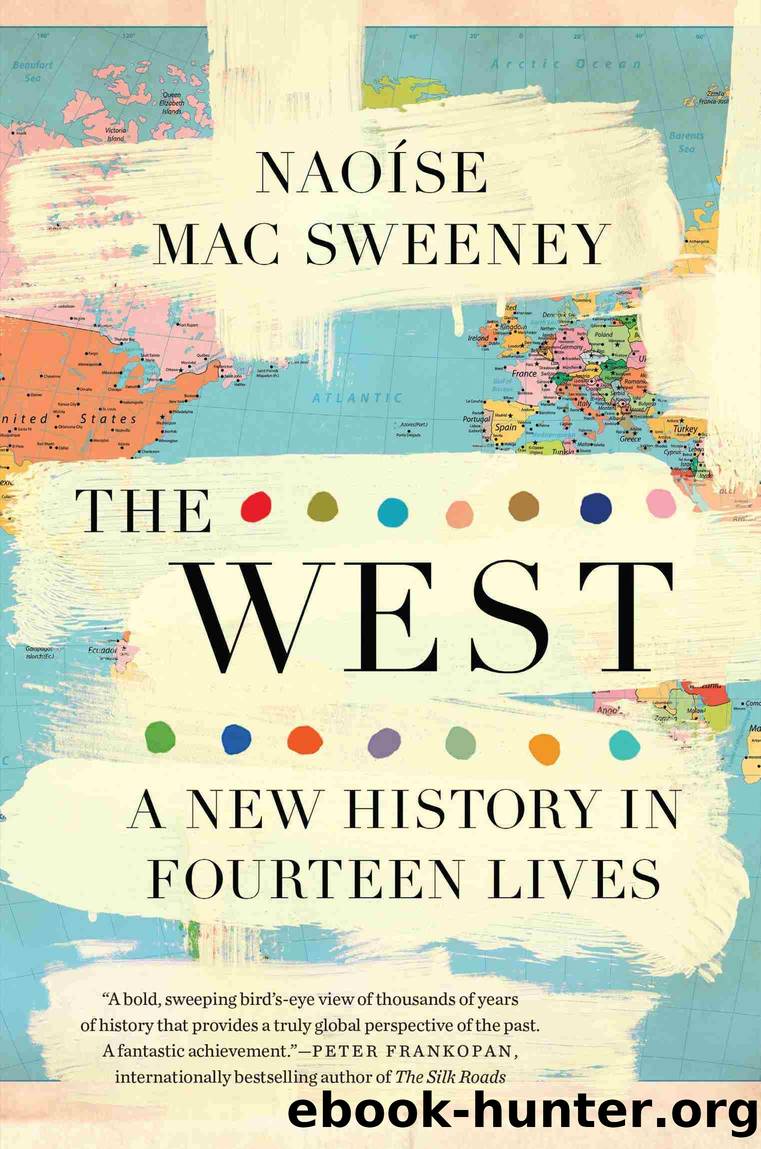The West by Naoíse Mac Sweeney

Author:Naoíse Mac Sweeney [Mac Sweeney, Naoíse]
Language: eng
Format: epub
Publisher: Penguin Publishing Group
Published: 2023-05-23T00:00:00+00:00
* * *
â
The idea that Anglophone North America was the culmination of Western Civilisation became popular in the late eighteenth century, thanks to men like Warren. But it was not an idea that was uniformly popular everywhere, even within the Americas. It was problematic for those residents of the new United States who remained disenfranchised under its rhetoric, as we shall see in the next chapter. It was not the prevailing ideology across the large swaths of land in the north still controlled by Britain, which would eventually become Canada. Nor was it necessarily dominant across the parts of North America with substantial Francophone populations, although French colonial rule on the American mainland had ended in 1763 with the Treaty of Paris (it continued for some time after this in the Caribbean). And it was definitely not a vision shared by the peoples of New Spain (in what is now central America and the southern portion of North America), the Caribbean, and South America.
Across much of Latin America, ancient Rome was closely associated with colonialism. The Spanish in particular had couched their imperial expansion in terms of Roman antiquity, justifying their American conquests with reference to Roman imperialism.[58] Throughout the Spanish-controlled Americas therefore, antiquity largely meant Rome rather than Greece, access to the Latin language was largely mediated by either the Catholic Church or the Spanish authorities, and knowledge about antiquity was bound up with social capital within the colonial system.[59] So although intellectuals in New Spain were just as engaged with the Roman past as their counterparts in Anglophone North America in the eighteenth century (this period has even been called a âGolden Ageâ of Latin literature in New Spain),[60] the political implications were markedly different. While for Warren, Washington, and Jefferson, Rome provided the template for an independent republican future; for the Guatemalan Jesuit poet Rafael LandÃvar, Latin literary conventions helped him to render his homeland comprehensible to European readers;[61] for the Jesuit missionary to Paraguay José Manuel Peramás, epic Roman heroism was a means to valorise the initial Spanish conquest and his own missionary work;[62] and for the Peruvian composer Tómas de Torrejón y Velasco, allusions to Roman myth furnished the backdrop for a lavish operatic celebration of the Spanish monarchy.[63]
The situation did begin to change, however, around the turn of the eighteenth into the nineteenth century, as ideas about Greco-Roman antiquity came to play a complex role in independence movements across central and South America.[64] Toussaint Louverture, a charismatic leader of enslaved Haitians in the revolution against French colonial rule, was hailed in 1796 as a âBlack Spartacusââa reference to the famous gladiator who led a revolt of enslaved people in Roman Italy in the first century BCE.[65] A more conscious pivot towards the ancient Greek world appears in the works of Latin American writers after this point, especially those involved with independence movements and with forging post-colonial national identities. Hellenism provided a way to claim the glories of Mediterranean antiquity and Western Civilisation that was
Download
This site does not store any files on its server. We only index and link to content provided by other sites. Please contact the content providers to delete copyright contents if any and email us, we'll remove relevant links or contents immediately.
Fanny Burney by Claire Harman(26592)
Empire of the Sikhs by Patwant Singh(23069)
Out of India by Michael Foss(16846)
Leonardo da Vinci by Walter Isaacson(13315)
Small Great Things by Jodi Picoult(7115)
The Six Wives Of Henry VIII (WOMEN IN HISTORY) by Fraser Antonia(5496)
The Wind in My Hair by Masih Alinejad(5085)
A Higher Loyalty: Truth, Lies, and Leadership by James Comey(4947)
The Crown by Robert Lacey(4805)
The Lonely City by Olivia Laing(4796)
Millionaire: The Philanderer, Gambler, and Duelist Who Invented Modern Finance by Janet Gleeson(4462)
The Iron Duke by The Iron Duke(4349)
Papillon (English) by Henri Charrière(4256)
Sticky Fingers by Joe Hagan(4188)
Joan of Arc by Mary Gordon(4098)
Alive: The Story of the Andes Survivors by Piers Paul Read(4017)
Stalin by Stephen Kotkin(3956)
Aleister Crowley: The Biography by Tobias Churton(3628)
Ants Among Elephants by Sujatha Gidla(3459)
